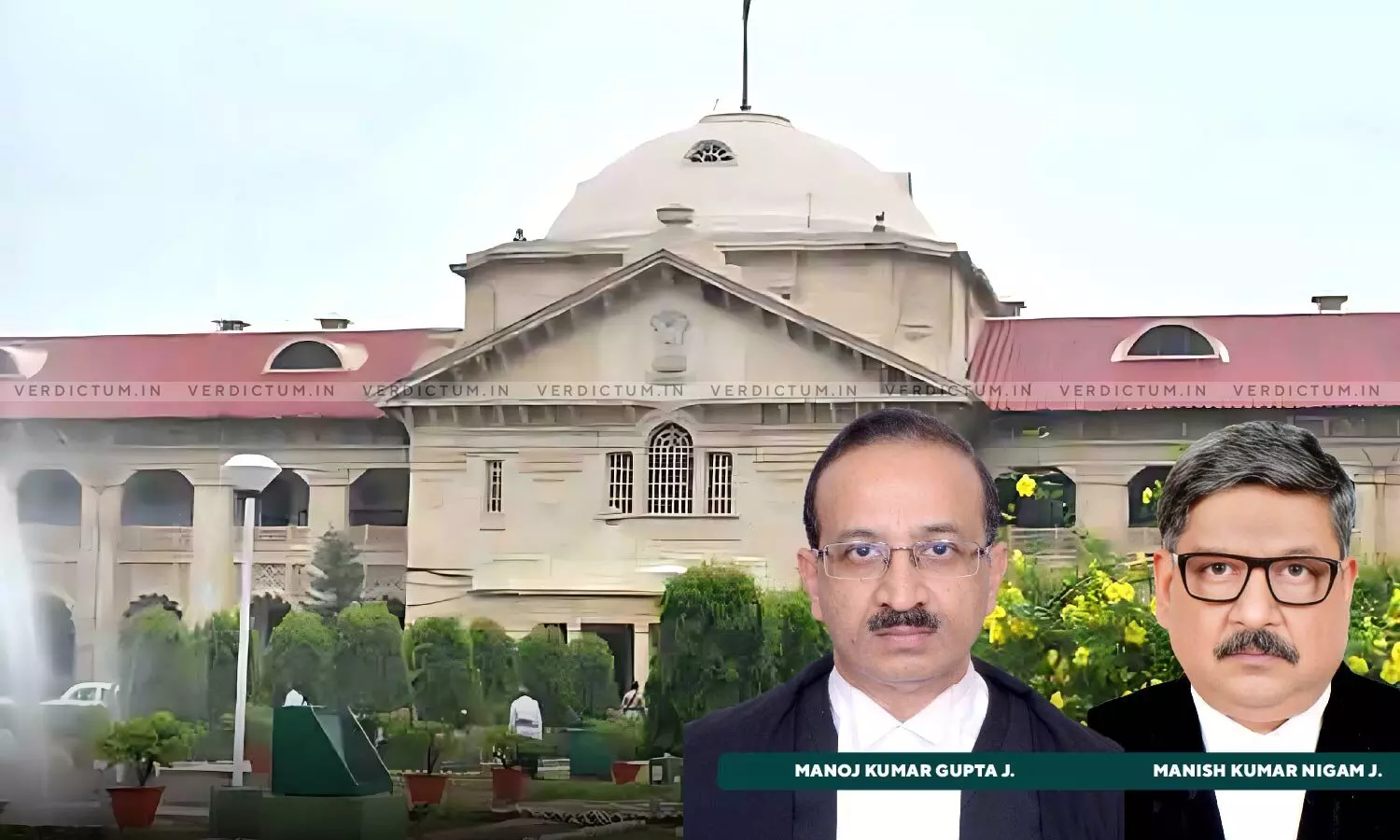
Section 3-H(1) NH Act Is For Benefit Of Tenure Holders, Cannot Confer Power On Central Government To Delay Compensation: Allahabad HC
 |
|The Allahabad High Court directed NHAI to make available compensation amount to the competent authority for disbursement to persons affected by land acquisition while emphasising that Section 3-H(1) National Highways Act, 1956 is for the benefit of tenure holders and cannot be interpreted to confer power on Central Government to delay payment of compensation to affected people.
The Court was hearing a Writ Petition seeking direction to the respondents to pay compensation and interest in pursuance of the award of the Competent Authority for land acquisition.
The bench of Justice Manish Kumar Nigam and Justice Manoj Kumar Gupta while noting that Section 3-H(1), which mandates that the State Government will deposit the compensation amount before taking possession is not a provision enabling the Central Government to delay payment of the compensation amount observed, “Rather the said provision is for the benefit of the tenure holders, whose lands had been acquired under the provisions of the Act. It is a safeguard against taking over of possession of the land without payment of compensation. The said provision cannot be interpreted to confer power on the Central Government to delay payment of compensation to the affected persons, who have been divested of their title.”
Advocate Shiv Kant Mishra appeared for the Appellant and C.S.C. Rajesh Kumar Jaiswal appeared for the Respondent.
Brief Facts-
The petitioners' land was acquired under the National Highways Act, 1956 after the notifications were issued in that respect and an award of Rs.12.48 Cr was given. Despite the competent authority's request for funds, and the Project Director's subsequent communication, higher authorities of NHAI have not granted financial approval, delaying the compensation payment.
The Court perused various Sections of the Act and said that the title in the land vests in the Central Government free from all encumbrances upon publication of the declaration under Section 3-D(1) of the Act. According to the Court, thereafter, the Central Government is conferred with power to enter and do other acts necessary upon the land for carrying out the building, maintenance, management or operation of a national highway.
The Court said that the consequence of vesting is that the real owner is divested of his title in the land and he cannot deal with it in any manner.
The Court further said that although actual physical possession of such land could be taken only after the compensation amount is deposited by the Central Government with the Competent Authority but it gets the power to enter upon the land to carry out necessary acts for building, maintenance, management and operation of a national highway.
The Court said that the stand taken by NHAI in its counter affidavit for declining to pay compensation is manifestly against the scheme of the Act and is, accordingly, rejected.
Finally, the Court allowed the Writ Petition.
Cause Title: Mohammad Shahid v. Union of India (Neutral Citation: 2024:AHC:108580-DB)